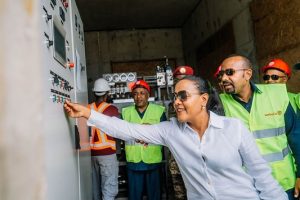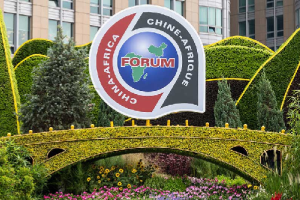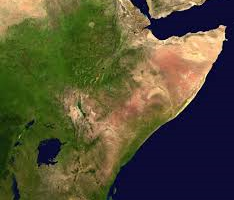
Ethiopia has made significant strides in improving its diplomatic activities through a combination of proactive engagement, strategic partnerships, and the pursuit of peaceful resolutions. These efforts have not only strengthened Ethiopia’s position on the global stage but have also contributed to regional stability and development.
By establishing diplomatic ties with more countries, Ethiopia has opened up avenues for economic, cultural, and political cooperation, as well as strengthened its voice in international forums. Besides, the country has placed great importance on building strategic partnerships with key players in the global arena.
Ethiopia has shown dedication to promoting peace and stability in the region through its involvement in conflict resolution efforts. The country has actively participated in mediation and peace building initiatives in neighboring countries. Its commitment to peaceful resolutions has not only helped alleviate human suffering but has also enhanced its reputation as a credible and reliable partner in promoting regional stability.
Ethiopia has prioritized diplomacy as a tool for sustainable development. The country has actively engaged in global initiatives addressing poverty, climate change, and other pressing challenges. In addition to these efforts, Ethiopia has invested in capacity-building programs to enhance its diplomatic capabilities.
The country has emphasized training for diplomats, fostering a new generation of skilled negotiators and representatives. This investment in human resources has empowered Ethiopia’s diplomatic corps to effectively advocate for the country’s interests and actively contribute to global discussions on various issues.
Ethiopia has been proactive in extending support and solidarity to fellow African countries. The country has provided humanitarian assistance and peacekeeping troops to nations facing crises, demonstrating its commitment to regional solidarity and cooperation. Through these efforts, Ethiopia has built strong relationships with other African countries, fostering a sense of unity and collective progress.
Ethiopia has diligently worked towards diversifying and broadening its diplomatic engagements in bilateral, regional, continental, and multilateral venues. This commitment to inclusivity and collaboration has not only strengthened Ethiopia’s global standing but has also fostered mutual understanding, cooperation, and shared prosperity. By actively engaging with a wide range of nations and international organizations, Ethiopia has demonstrated its commitment to fostering meaningful relationships and addressing global challenges collectively.
In bilateral engagements, Ethiopia has sought to deepen its ties with various countries across the globe. The country has proactively engaged in diplomacy, trade, and investment activities, recognizing the importance of building strong partnerships for economic
growth and development. Bilateral dialogues have enabled Ethiopia to tap into diverse knowledge, expertise, and resources from different nations, fostering innovation, technology transfer, and infrastructure development.
Through its membership in the AU, Ethiopia has played a crucial role in strengthening regional cooperation, peacekeeping missions, and conflict resolution. By engaging in regional dialogues and initiatives, Ethiopia has successfully addressed shared challenges such as climate change, migration, and security threats. These collaborative efforts have fostered a sense of unity and common purpose among African nations, leading to increased stability and socio-economic progress.
As the host country of the AU headquarters, Ethiopia has provided a platform for dialogue, negotiation, and consensus-building on matters of pan-African interest. Ethiopia’s active involvement in the AU’s decision-making processes reflects its commitment to championing the aspirations, interests, and rights of African nations. By actively engaging with a broad range of nations, Ethiopia has expanded its economic and trade relations, attracting foreign direct investment and boosting its export capabilities.
Ethiopia’s journey towards diversified and inclusive diplomatic engagements in bilateral, regional, continental, and multilateral venues has brought about significant positive changes for the country and its global partners. Through forging strong bilateral relationships, engaging in regional and continental initiatives, and actively participating in multilateral forums, Ethiopia has successfully positioned itself as a respected player on the world stage.
One of the key factors contributing to Ethiopia’s inclusion in the BRICS group is its impressive economic growth. The country has been consistently achieving high GDP growth rates, making it one of the fastest-growing economies in Africa. This economic progress has been accompanied by investments in infrastructure development, agriculture, and manufacturing sectors, which have further enhanced Ethiopia’s image as an attractive investment destination.
Ethiopia’s proactive approach to regional stability and conflict resolution has also earned the trust of the international community. The country has played a pivotal role in peacekeeping missions, particularly in neighboring countries. Its commitment to upholding peace and security aligns with the objectives of BRICS, where member nations aim to foster a peaceful global environment.
In an interview he gave to The Ethiopian Herald, Melaku Mulualem, a researcher on International Relations and Diplomacy in the Institute of Foreign Affairs of Ethiopia expounded upon the extensive diplomatic efforts and endeavors Ethiopia has put forth in order to join the BRICS group. As he explained, the country has had to engage in rigorous competition with many African nations in order to secure its place in the group.
According to Melaku, Ethiopia’s government has played a crucial role in facilitating access
to this elite group through various diplomatic activities. These efforts have included intensive engagement with other nations, extensive negotiations and discussions, as well as other important diplomatic activities aimed at securing Ethiopia’s rightful place among the world’s most powerful and influential countries.
He emphasized that gaining membership in the BRICS group would be an extremely noteworthy accomplishment for Ethiopia, as it would provide the country with a wealth of crucial benefits and opportunities for both its citizens and its government.
“Key advantages of membership in this influential organization could include closer partnerships with other world powers, strengthened trade relations with other nations, access to valuable resources and important information, and enhanced levels of political influence and social prestige on the global stage,” he added.
Membership in the BRICS group would not only benefit Ethiopia’s relationship with Egypt but also enhance its soft power and acceptance on the world stage. The ability to meet with Egypt at various BRICS stages could potentially lead to increased harmony between the two nations. Additionally, acceptance into this prestigious group would boost Ethiopia’s standing in the global community.
According to the former Ethiopian Ambassador Tiruneh Zena, the constructive non-aligned diplomatic principle that Ethiopia has been pursuing for many years has earned it trust and acceptance, according to information obtained from Ethiopian news Agency.
Ethiopia has been taking a non-aligned position and implementing constructive principle in its diplomatic activities, following the division of the world into two camps after the Second World War.
Non-alignment is an independent policy which originated after the war and does not associate itself with the blocs.
Ethiopia, which is the founder of non-alignment, adheres to its principle of neutrality in its relations with other countries, the former ambassador noted.
Neutrality does not mean having no position or a group of non-aligned countries with no position, Ambassador Tiruneh stated, adding that such countries do have position but do not simply support one or the other.
He stressed that the principle of constructive non-aligned diplomacy Ethiopia is currently following has enabled it to establish diplomatic relations based on cooperation with all countries of the world.
The Spokesperson of the Ministry of Foreign Affairs of Ethiopia, Ambassador Meles Alem, in his bi-weekly press briefing conducted recently disclosed that the Ministry is working towards a more diversified and inclusive diplomatic engagements in bilateral, regional, continental and multilateral venues.
Addressing local and Addis Ababa-based correspondents, Amb. Meles said, the Ministry’s focus area in the 2015/2016 EFY is the diversification and inclusivity of its holistic and cross-cutting engagements in the areas of aviation, sports, cultural and people-to-people diplomacy.
In this regard, the Spokesperson stressed the fact that diplomacy is not a reserve of career diplomats only rather the wider public. As such, the Government is working on building the capacity of Foreign Service personnel while capitalizing on merits and professionalism to increase the efficiency and efficacy of the conduct of the nation’s diplomacy and foreign relations.
Speaking of the current state-of-affairs, the Spokesperson noted, the Ethiopian Government is committed to furthering the post-conflict peace consolidation efforts in tandem with the implementation of transitional justice and national dialogue mechanisms. The concerted efforts in this regard are geared towards sustainably protecting our national interests and expanding the sphere of Ethiopia’s influence in global affairs, he added.
Ethiopia’s main foreign policy imperative in the Horn of Africa is ensuring peace and stability as well as economic integration buttressed by people-to-people and infrastructural linkages.
Parallel to its active engagements in regional affairs, Ethiopia is also committed to championing Pan-African ideals in such a way that African problems could be solved through African mechanisms, Ambassador Meles told journalists.
In the Middle East, the Spokesperson disclosed, the Government is working closely with countries of the Gulf to further boost the multifaceted relations, especially in the areas of trade, investment and job opportunities for our nationals in those nations.
BY ADDISALEM MULAT
The Ethiopia Herald September 14/2023





